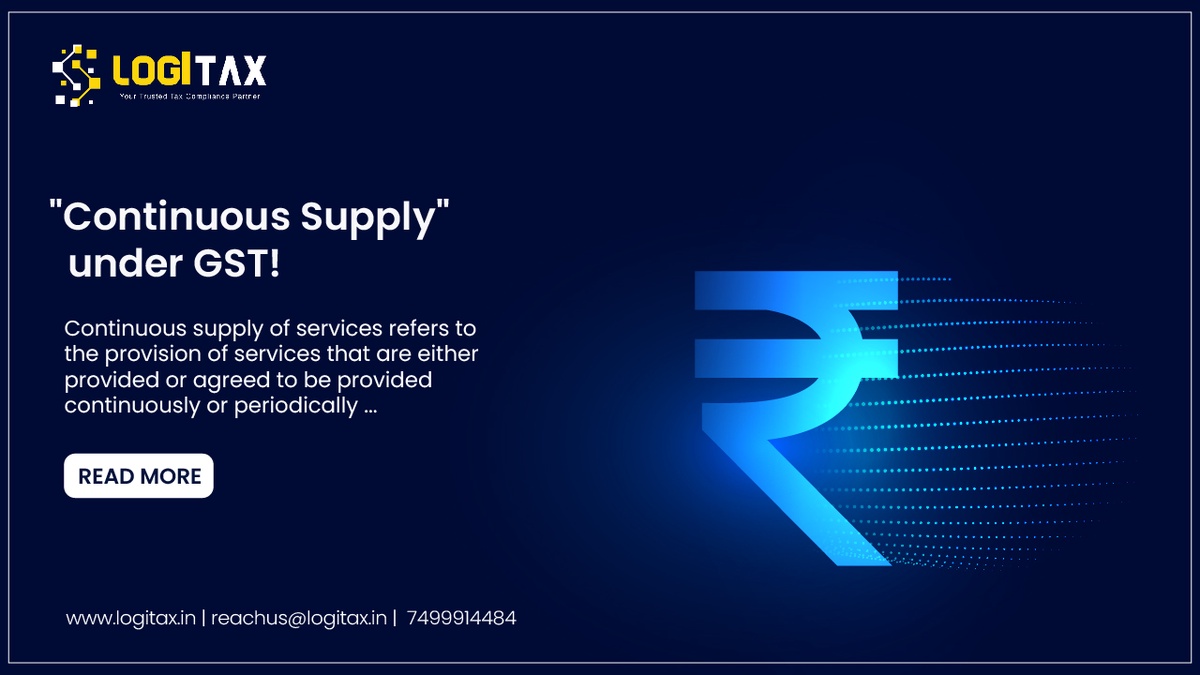What is meant by continuous supply under GST?
According to section 2(33) of the CGST Act, 2017, a "continuous supply of services" refers to the provision of services that are either provided or agreed to be provided continuously or periodically under a contract, for a duration exceeding three months. Such services entail periodic payment obligations and encompass services specified by the Government through notifications, subject to specified conditions.
What is the relevance of the term “continuous supply” under GST?
Section 31 of the CGST Act, 2017 covers provisions relating to the time limit for issuance of tax invoices by a registered person.
In the case of the supply of goods, section 31(1) states that a tax invoice shall be issued before or at the time of,-
(a) removal of goods for supply to the recipient, where the supply involves the movement of goods; or
- b) delivery of goods or making available thereof to the recipient, in any other case.
However, section 31(4) states that in case of continuous supply of goods, where successive statements of accounts or successive payments are involved, the invoice shall be issued before or at the time each such statement is issued or, as the case may be, each such payment is received.
Similarly, section 31(2) states that in the case of a supply of services, a registered person supplying taxable services shall issue a tax invoice before or after the provision of service but within a prescribed period.
However, in the case of a continuous supply of services,
(a) where the due date of payment is ascertainable from the contract, the invoice shall be issued on or before the due date of payment;
(b) where the due date of payment is not ascertainable from the contract, the invoice shall be issued before or at the time when the supplier of service receives the payment;
(c) where the payment is linked to the completion of an event, the invoice shall be issued on or before the date of completion of that event.
Conclusively, in the case of continuous supply, the government intends to collect the taxes at the earliest events because this supply is an ongoing process.
An example of a continuous supply
In the case of a continuous supply of goods, we can refer to the example of supplying bricks to the builder who is constructing a township. The builder continuously requires bricks on a regular basis.
In the case of a continuous supply of services, we can refer to the example of AMC and Maintenance contracts. Businesses frequently sign Annual Maintenance Contracts (AMCs) or long-term service agreements to keep their machines or equipment in good condition. These contracts ensure regular maintenance and repair services. The supply of services continues, and when the services are provided depends on what's written in the contract or when the bill is sent.
Conclusion
Continuous supply plays a crucial role in GST compliance, especially concerning invoicing and tax collection. Understanding the concept is essential for businesses to ensure timely compliance with invoicing requirements. Whether it's the supply of goods or services, continuous supply agreements govern ongoing transactions, highlighting the importance of clarity and precision in contractual terms.


No comments yet